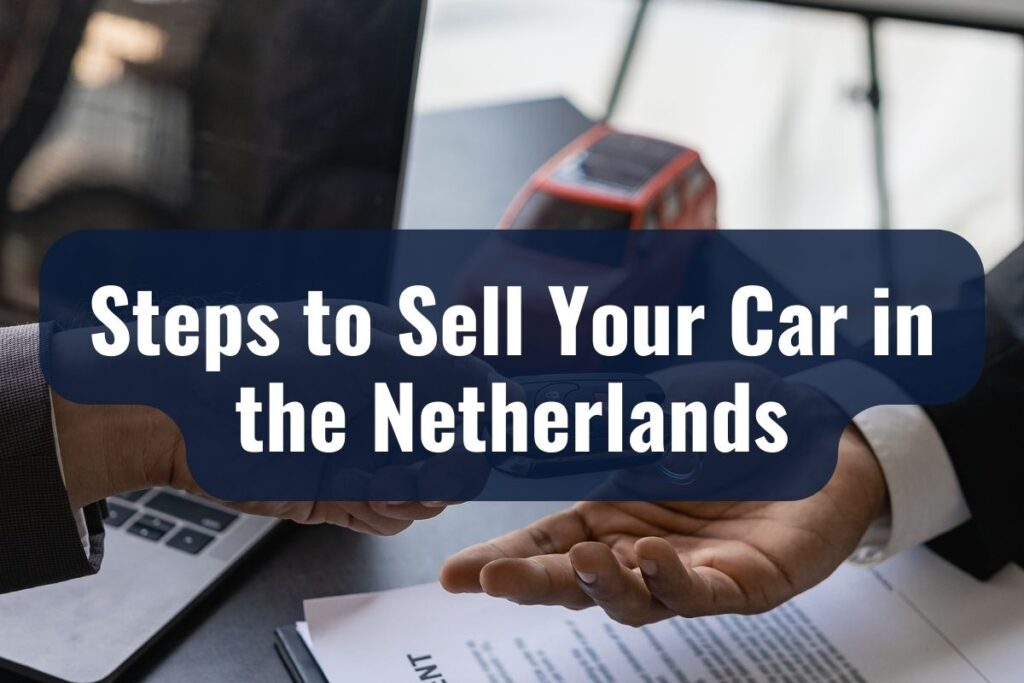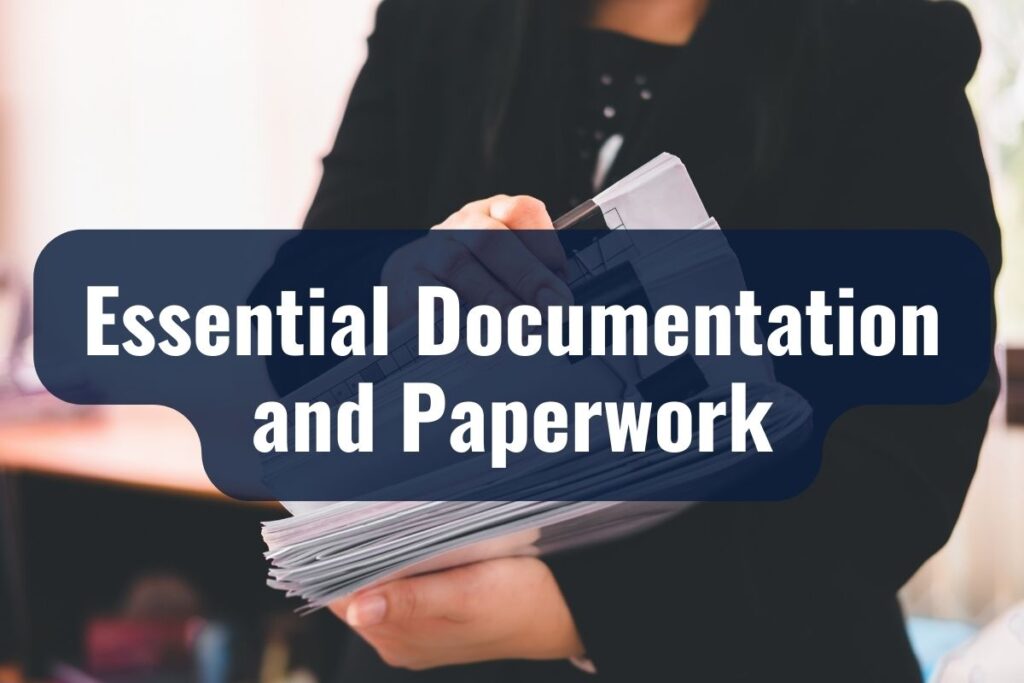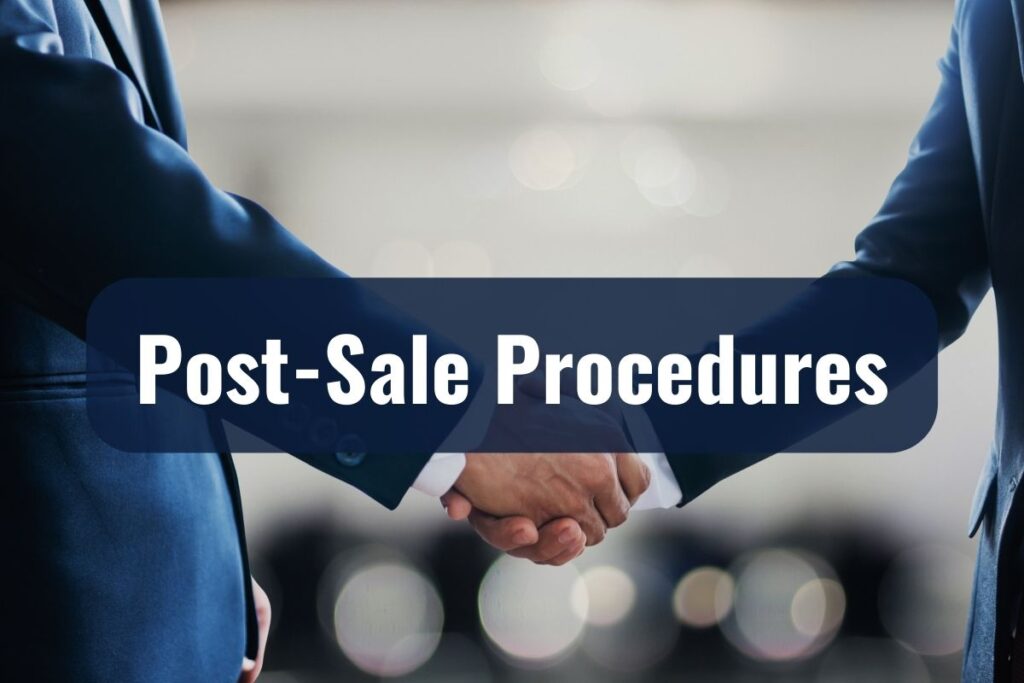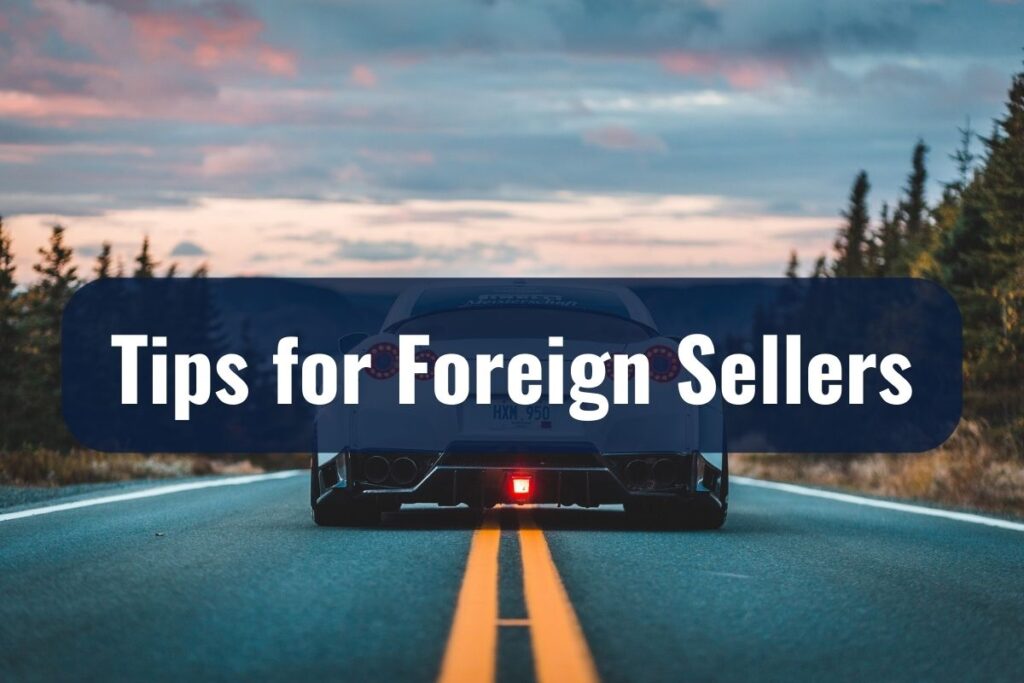This guide is designed to help you understand the process of selling your car in the Netherlands. Whether you’re unfamiliar with Dutch procedures or just want a clear step-by-step rundown in English, we’ve got you covered.
Key Takeaways
- Essential documentation like the Vrijwaringsbewijs and APK are pivotal for a smooth sale.
- Transferring ownership involves an RDW-recognized company and ensures seller’s liability ends.
- Post-sale procedures, such as de-registering the car and informing the insurance company, seal the deal comprehensively.
- Foreign sellers benefit from transparency, understanding local culture, and utilizing available resources.
Dutch Car Selling Basics
The Netherlands, with its intricate canals, historic cities, and vast tulip fields, also has a robust and structured system for vehicular transactions. If you’re a foreigner, understanding the core elements of this system will make your selling experience efficient and straightforward.
RDW (Rijksdienst voor het Wegverkeer)
The RDW, or the Netherlands Vehicle Authority, plays a pivotal role in all things related to vehicles. Whenever a car is bought, sold, or imported, the RDW is involved. It’s essential to familiarize yourself with their procedures, as they ensure legal and safe transfers of vehicle ownership.
Vehicle De-registration
When selling your car, it isn’t just about handing over the keys to a new owner. In the Netherlands, it’s crucial to de-register the vehicle in your name. This process ensures you’re no longer responsible for the car, especially when it comes to taxes, liabilities, or potential traffic violations.
Taxes and Fees
Just as in many countries, selling a car in the Netherlands may involve certain taxes or fees. While these aren’t typically exorbitant, it’s good practice to be aware of them.
For instance, there might be costs linked to transferring ownership or finalizing specific paperwork. Being aware of these ensures no surprises during your selling journey.
Steps to Sell Your Car in the Netherlands

Selling your car in a foreign land might initially seem like navigating through a labyrinth, but fear not! With the right steps, you’ll find that the process in the Netherlands is organized and user-friendly, especially once you understand the flow. Here’s a detailed breakdown to guide you:
a. Preparing Your Car for Sale
First impressions matter. When potential buyers see your car, you’ll want it to shine, both literally and figuratively.
Cleaning and Maintenance: Give your car a thorough wash, both inside and out. Consider a professional detailing service if your budget allows. Ensure minor repairs are taken care of, and it might be worth investing in servicing the car, especially if it’s due soon.
Gathering Necessary Paperwork: Prospective buyers will appreciate transparency. Compile documents like the car’s registration, maintenance history, and any receipts for recent work done. Having these on hand can speed up the sale process and instill confidence in your buyer.
b. Determining the Value of Your Car
Pricing your car appropriately is crucial. Neither overpricing nor underpricing is advantageous.
Online Tools: Websites such as Autoscout24 or ANWB can provide an estimate of your car’s market value based on its age, make, model, and condition.
Consulting Professionals: If you’re unsure about your car’s value, consider getting a professional valuation. Some local garages or dealerships might offer this service.
c. Where to List Your Car for Sale
There are several platforms and methods to reach potential buyers:
Online Marketplaces: Websites like Marktplaats and Autoscout24 are popular in the Netherlands. They offer a wide reach and cater to various car models and price ranges.
Local Newspapers or Community Boards: Especially in smaller towns, local advertisements can be effective. Some community centers or supermarkets have boards where you can pin your ad.
Car Dealerships and Trade-in Options: If you’re looking to buy another car, consider trading in your current one. It might not fetch the highest price, but it’s a hassle-free method.
d. Conducting Safe Transactions
With the excitement of selling, it’s vital to ensure safety.
Meeting Potential Buyers: Always meet in a public place during daylight hours. If possible, bring a friend along.
Test Drive Precautions: If a buyer wishes to test drive, accompany them. Ensure you’ve seen their driving license and that the necessary insurance is in place.
Secure Methods of Payment: Prefer bank transfers or a bank draft over cash. If accepting cash, consider doing the transaction at a bank where the notes can be verified.
Essential Documentation and Paperwork

Documentation is the backbone of any vehicle sale, ensuring the transaction is legitimate, transparent, and legally sound. In the Netherlands, the car-selling process is no different. Here’s a rundown of the pivotal paperwork and documentation you should be aware of:
| Document | Description |
| Vrijwaringsbewijs | Proof of deregistration, indicating you’re no longer responsible for the car |
| APK (Algemene Periodieke Keuring) | Periodic Vehicle Inspection detailing the car’s safety and environmental status |
| Original Car Manual | Provides car-specific information beneficial for the next owner |
| Service Book | Records all maintenance checks and repairs, offering transparency on the vehicle’s history |
| Sales Agreement | Details the condition, price, and terms of the sale; signed by both seller and buyer |
Vrijwaringsbewijs (Proof of Deregistration)
This is perhaps the most crucial document in the selling process. It’s proof that the car has been de-registered in your name, absolving you of all responsibilities related to it. Upon sale, ensure you receive this document; it is typically provided when the car’s ownership is officially transferred to an RDW-recognized company.
APK (Algemene Periodieke Keuring)
Known in English as the Periodic Vehicle Inspection, the APK report highlights the car’s safety and environmental status. Buyers will almost always ask for the most recent APK certificate, as it provides insights into the vehicle’s condition and any potential future repairs.
Original Car Manual and Service Book
Keeping the original car manual can be a boon for the next owner. The service book, which records all maintenance checks and repairs, offers transparency about the vehicle’s history, potentially boosting the buyer’s confidence in the purchase.
Sales Agreement
Although not mandatory, it’s highly recommended to draft a sales agreement when selling your car. This contract should detail the car’s condition, agreed-upon price, and terms of the sale. Both the seller and the buyer should retain a signed copy.
Transferring Ownership
The transfer of ownership is the crescendo of the car-selling process. It’s the moment when all your preparation meets fruition, and the vehicle officially changes hands. In the Netherlands, this process is clear-cut, but it’s essential to be thorough to ensure everything goes off without a hitch.
Role of the RDW
Once again, the RDW (Rijksdienst voor het Wegverkeer) plays a pivotal role. Officially transferring ownership of a vehicle can only be done at an RDW-recognized company, which could be a car dealership or a service station with the appropriate authorization.
Procedure
During the transfer, both the seller and buyer should be present. The seller should provide the vehicle registration certificate (kentekencard). Upon completion, the RDW-recognized company will provide the seller with the Vrijwaringsbewijs, proving that they’re no longer responsible for the vehicle. The buyer, in turn, will receive a new registration certificate in their name.
Payment and Transfer
It’s a good practice to ensure that the payment process aligns with the ownership transfer. Once the buyer confirms the payment (or it’s visibly reflected in your account), you can proceed with the official transfer. This simultaneous approach ensures security for both parties.
Notifying Insurance Companies
Once the ownership has been transferred, it’s imperative to inform your insurance company about the sale, allowing them to update their records and end your car insurance coverage, if applicable.
Post-Sale Procedures

Once the handshake is done, the car keys are handed over, and the buyer drives off, you might feel a sigh of relief. However, there are a few final touches to ensure that everything truly is wrapped up. The post-sale procedures, while not as intense as the preceding steps, are equally vital to completing your car-selling journey in the Netherlands.
De-registering the Car
While you would have received the Vrijwaringsbewijs during the ownership transfer, which effectively de-registers the car from your name, ensure you keep this document safe. It’s your proof that you no longer hold any liabilities for the vehicle.
Handling License Plates
In the Netherlands, license plates usually stay with the car throughout its lifetime. So, in most cases, there’s no need to remove them. However, if for some reason, you have personalized or unique plates that need to be returned or reused, consult with the RDW on the necessary steps.
Informing Your Insurance Company
As reiterated earlier, once the sale is complete, get in touch with your car insurance provider to inform them of the sale. They’ll guide you through ending or amending your insurance policy. This step is crucial to ensure you aren’t paying for a vehicle you no longer own.
Keeping Records
Even after the sale, it’s good practice to keep all related documentation, including the sale agreement, for a reasonable period. It can be helpful for reference in case of any discrepancies or if you need to verify the details of the transaction.
Tips for Foreign Sellers

As a foreigner in the Netherlands, selling your car comes with its unique set of challenges, primarily due to potential language barriers and unfamiliarity with local procedures. But with a bit of insight and some handy tips, you can navigate the process with ease and confidence.
Language Assistance
While many Dutch individuals speak excellent English, there can still be some communication gaps, especially with official documents. Consider having a Dutch-speaking friend assist you or utilize trusted translation apps to help decipher any unfamiliar terms.
Set Realistic Expectations
Remember that cultural differences might play a role in negotiations or interactions with potential buyers. Stay open-minded, and don’t be surprised if the Dutch directness comes into play during discussions.
Be Transparent
Honesty goes a long way, especially when you’re dealing with discerning Dutch buyers. Mention any known issues with the car or reasons for the sale. This forthrightness can foster trust and streamline the selling process.
Know Your Rights
Familiarize yourself with the rights and responsibilities of both buyers and sellers in the Netherlands. This knowledge ensures you’re not taken advantage of and that the sale is equitable for both parties.
Safety First
Especially as a foreigner, prioritize your safety. Avoid sharing too much personal information upfront, and always meet potential buyers in public spaces. Trust your instincts; if something feels off, it’s okay to be cautious.
Additional Resources
The RDW‘s website is a treasure trove of information, detailing everything from ownership transfers to vehicle inspections. While primarily in Dutch, many sections are also available in English.
The Royal Dutch Touring Club (ANWB) provides valuable insights on vehicle valuation, safety tips, and more. It’s an excellent resource for foreigners looking to understand the Dutch vehicular landscape.